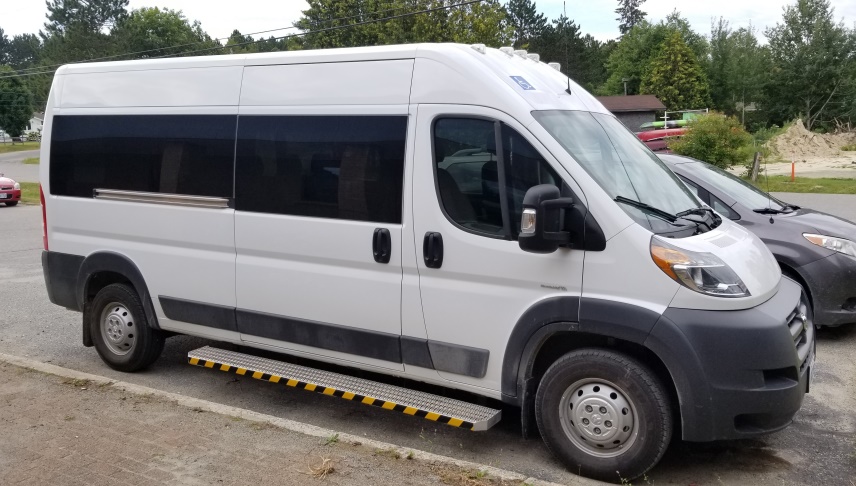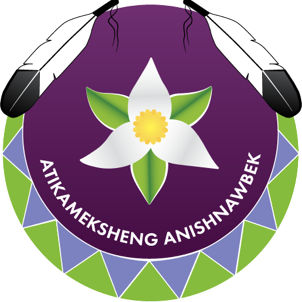
Home and Community care offers transportation to Sudbury every Monday for elders and HCC clients. Trip pickups are either 9:00 am or 1:00 pm They also offer transportation on Wednesday afternoons to Lively only.
Atikameksheng Anishnawbek Shawenekezhik Health Centre coordinates the medical transportation program funded by Indigenous Services Canada. The goal of the program is to provide coordinate medical transportation to registered First Nations community members living in Atikameksheng Anishnawbek.
The program will assist individuals who do not have the means to get to their medical appointments. The program provides; local medical transportation, urgent medical transportation and will assist clients with long distance medical transportation.
Indigenous Services Canada provides Atikameksheng Anishnawbek with funds to administer this program through a Contribution Agreement guided by the NIHB Medical Transportation Policy Framework. The Framework can be found at the link below and defines the policies and benefits under which the NIHB Program will fund eligible registered First Nations and recognized Inuit (clients) with access to medically required health services not provided on the reserve or in the community of residence. Medical transportation benefits are funded in accordance with the mandate of the NIHB Program, which includes providing non-insured health benefits that are appropriate to the needs of the clients and sustainable. The NIHB Medical Transportation Policy Framework sets out a clear definition as to the eligibility of clients, the types of benefits to be provided and criteria under which they will be funded.
The General Principles of the program are;
- Medical transportation benefits are funded in accordance with the policies set out in this framework, to assist clients to access medically required health services that cannot be obtained on the reserve or in the community of residence, when access would otherwise be denied. Exceptions may be granted, with justification and First nations and Inuit Health Branch (FNIHB) approval, to meet exceptional needs.
- Access to medically required health services may include financial assistance to the client or arranging for the provision of services from the reserve or community of residence when the following conditions are met:
- The client has exhausted all other available sources of benefits for which they are eligible under provincial/territorial health or social programs, other publicly funded programs (e.g., motor vehicle insurance, Workers Compensation) or private insurance plans;
- Travel is to the nearest appropriate health professional or health facility (when health professionals are brought into the community to provide the service, the community facility is considered the nearest appropriate facility);
- The most economical and efficient means of transportation is used, taking into consideration the urgency of the situation and medical condition of the client;
- An FNIHB or First Nations or Inuit Health Authority or organization representative or on-site medical professional has determined that medically required health services are not available on the reserve or community of residence;
- Transportation to health services is coordinated to ensure maximum cost-effectiveness;
- Transportation benefits are provided when prior approved by FNIHB or a First Nations or Inuit Health Authority or organization or post approved upon medical justification if consistent with the framework;
- In emergency situations, when prior approval has not been obtained, expenses may be reimbursed by FNIHB or a First Nations or Inuit Health Authority or organization when appropriate medical justification is provided to support the medical emergency and approved after the fact; and
- When public transit is not available.
- Medical transportation benefits may be provided for clients to access the following types of medically necessary health services:
- medical services defined as insured services by provincial/territorial health plans (e.g., appointments with a physician, hospital care);
- diagnostic tests and medical treatments ordered by a physician or other health professional within his or her scope of practice and which are covered by provincial/territorial health plans;
- publically-funded alcohol, solvent, drug abuse, and detox treatment;
- traditional healers;
- Non-Insured Health Benefits (vision, dental, mental health, medical supplies, and equipment); and
- Publically-funded preventative screening e.g. breast cancer screening (where coordination with other medical travel is not feasible).
- Medical transportation benefits include ground, water, and air travel, meals and accommodations. For more information, refer to Sections 3 (Modes of Transportation), 4 (Emergency Transportation) and 9 (Meals and Accommodations).
- Medical transportation benefits may be provided for an approved escort. Refer to Section 5 (Client Escorts).
- In cases where a client is required to travel repeatedly on a long term basis to access medical care/treatment, medical transportation benefits will be provided for up to four months. Extensions may be considered on an exception basis.
- Medical transportation benefits may be provided when the client is referred by the provincial/territorial health care authority for medically required health services to a facility outside of Canada when such services are covered by a provincial/territorial health plan and the medical transportation benefits are not covered by provincial/territorial health or social programs, other publicly funded programs or private insurance.
- When a request for medical transportation is denied, an appeal process is available. Appeals must be initiated by the client or by a designate acting on their behalf. For more information, refer to Appendix E (Appeal Process), or contact the NIHB Regional Office.
The Framework Agreement will provide details on;
- Coordinated Travel
- Modes of Transportation
- Private Vehicles
- Fee for Service Driver and Vehicle, Commercial Taxi
- Indemnification
- Public Transportation
- Charter Flights
- Emergency Transportation
- Clients Escorts
- Appointments
- Residential Addictions Treatment Travel Policy
- Traditional Healer Services Travel Policy
- Meals and Accommodations
- Reimbursement of Travel Expenses
- Exceptions (include; diagnostic tests, fitting for medical equipment/vision care, access supervised opioid addiction treatment)
- Exclusions (include; compassionate travel, services for incarcerated clients, court ordered treatment/assessment, appointments outside of Canada, etc.)
Please refer to the link below for details on the Framework Agreement.
This program is managed by the Health Programs Manager and administered by Health Services Clerk who will work with the Medical Driver in the daily operations of the program following the Non-Insured Health Benefits (NIHB) Medical Transportation Policy Framework. More information can be obtained by calling the Shawenekezhik Health Centre or by visiting the link below to Indigenous Services Canada.
What is the Non-Insured Health Benefits Program?
The Non-Insured Health Benefits (NIHB) Program is a national program that provides coverage to registered First Nations and recognized Inuit for a specified range of medically necessary items and services that are not covered by other plans and programs.
What is covered by the NIHB Program? The benefit categories for the NIHB Program are:
- Dental care;
- Eye and vision care;
- Medical supplies and equipment;
- Drugs and pharmacy products;
- Mental health counselling; and
- Assistance with medical transportation to access medically necessary services.
For more information on these benefits, please visit the link below.
